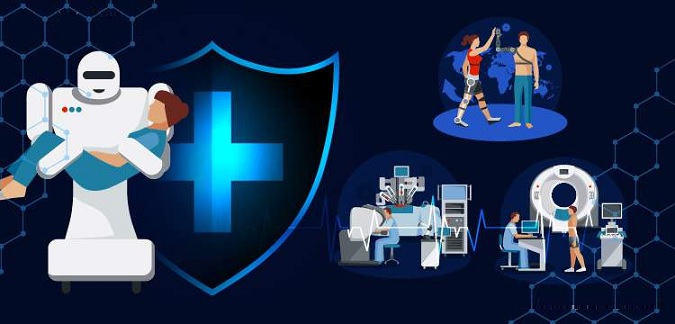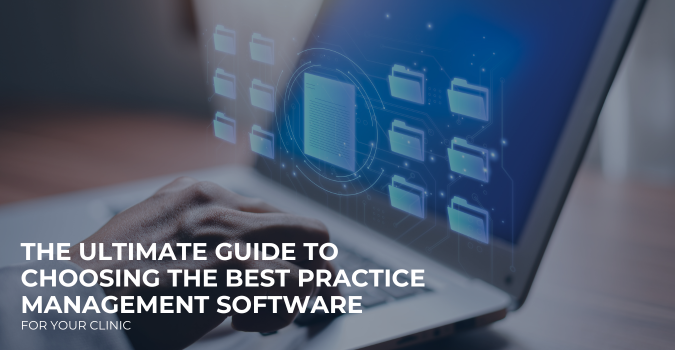In today’s fast-paced digital world, patients expect the same level of convenience and accessibility from…

The Future Of Healthcare and Explainable AI
In the last few years, we have seen notable growth in the digital industry. The growth of AI in healthcare has accelerated within the last two years with the augmented adoption of solutions that allow remote interaction. The healthcare system is complicated needing severe interaction strategies to achieve efficiency and optimal outcomes.
The innovation of artificial intelligence (AI) for healthcare is facilitating surgical rooms and operations. Also, health specialists are leveraging augmented reality (AR), virtual reality (VR), or MR (mixed reality) innovation to treat their patients in a better way. Medical schools are also leveraging technology innovation to educate the students. Due to these technological innovations, sooner or later AI will transform the healthcare industry completely.
Artificial Intelligence (AI) in the healthcare sector can uplift medical treatments and help doctors in different aspects. In the future, Artificial Intelligence can take complete control of frontline medical practitioners and workers assisting them to save lives without putting themselves in trouble. Furthermore, taking AI-based clinical decision support systems as a case in point, users need to develop a multidisciplinary approach to analyze the relevance of explainability for medical AI from the technological, legal, medical, and patient perspectives.
What is Explainable AI?
Explainable AI has become a vast topic in healthcare as errors and mistakes in the systems can directly impact human life. In healthcare, AI systems analyze the widest probable scope of users and are involved in high-stakes decisions. Thus, all users should be able to access and benefit from AI services, regardless of their age, gender, abilities, or characteristics. Healthcare professionals and patients need to recognize the precision and shortcomings of healthcare-associated AI systems.
Three categories for applications of AI in healthcare
As AI finds its way into everything from our smartphones to the supply chain, applications in health care fall into three broad groupings:
- Patient-oriented AI
- Clinician-oriented AI
- Administrative- and operational-oriented AI
Benefits of AI In Healthcare
From patient care and self-service to chatbots, computer-aided detection (CAD) systems for diagnosis, and image data analysis to identify candidate molecules in drug discovery, AI is already at work increasing convenience and efficiency, reducing costs and errors, and generally making it easier for more patients to receive the health care they need.
AI in healthcare can create a number of benefits. It enhances preventive care and quality of life makes accurate diagnoses and develops the right treatment plans. AI can also help to track the spread of infectious diseases by examining data from the government and healthcare.
- Improve provider and clinician productivity and quality of care.
- Enhance patient engagement in their own care and streamline patient access to care.
- Accelerate the speed and reduce the cost to develop new pharmaceutical treatments.
- Personalize medical treatments by leveraging analytics to mine significant, previously untapped stores of non-codified clinical data.
While each AI technology can contribute significant value alone, the larger potential lies in the synergies generated by using them together across the entire patient journey, from diagnoses to treatment, to ongoing health maintenance.
The future outlook for AI
The best opportunities for AI in healthcare over the next few years are hybrid models, where clinicians are supported in diagnosis, treatment planning, and identifying risk factors, but retain ultimate responsibility for the patient’s care. This will result in faster adoption by healthcare providers by mitigating perceived risk and starting to deliver measurable improvements in patient outcomes and operational efficiency at scale.
Conclusion
AI-powered solutions have made small steps towards addressing key issues but still have yet to achieve a meaningful overall impact on the global healthcare industry, despite the substantial media attention surrounding it. If several key challenges can be addressed in the coming years, they could play a leading role in how healthcare systems of the future operate, augmenting clinical resources and ensuring optimal patient outcomes. So, without skipping out on the technology, reach out to Medical IT. Services for AI-based healthcare solutions to stand ahead of your competition.
Also Read:




